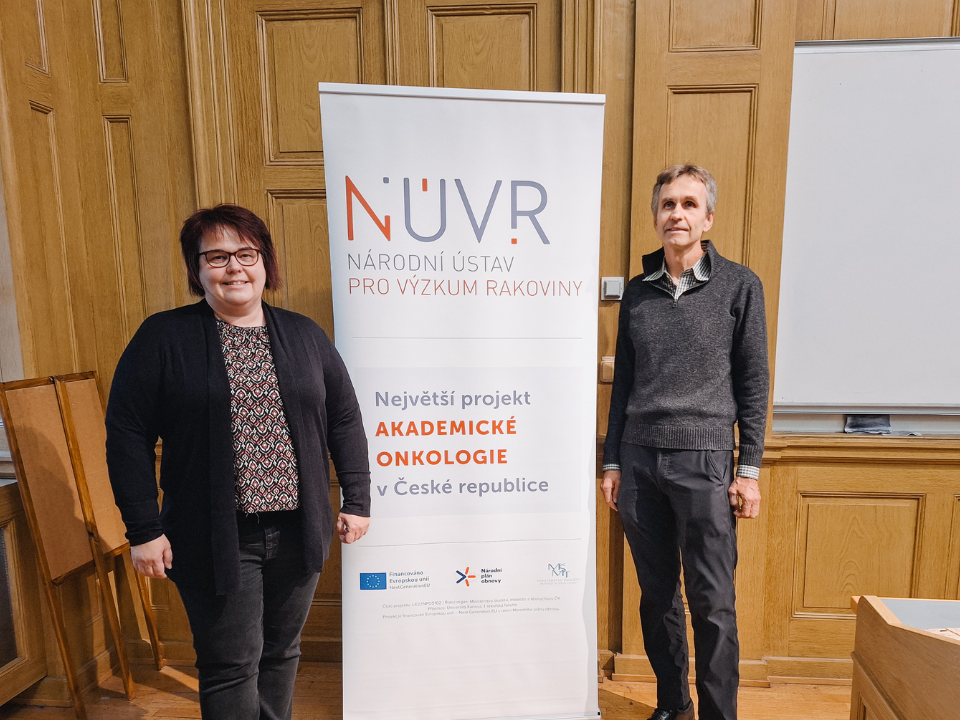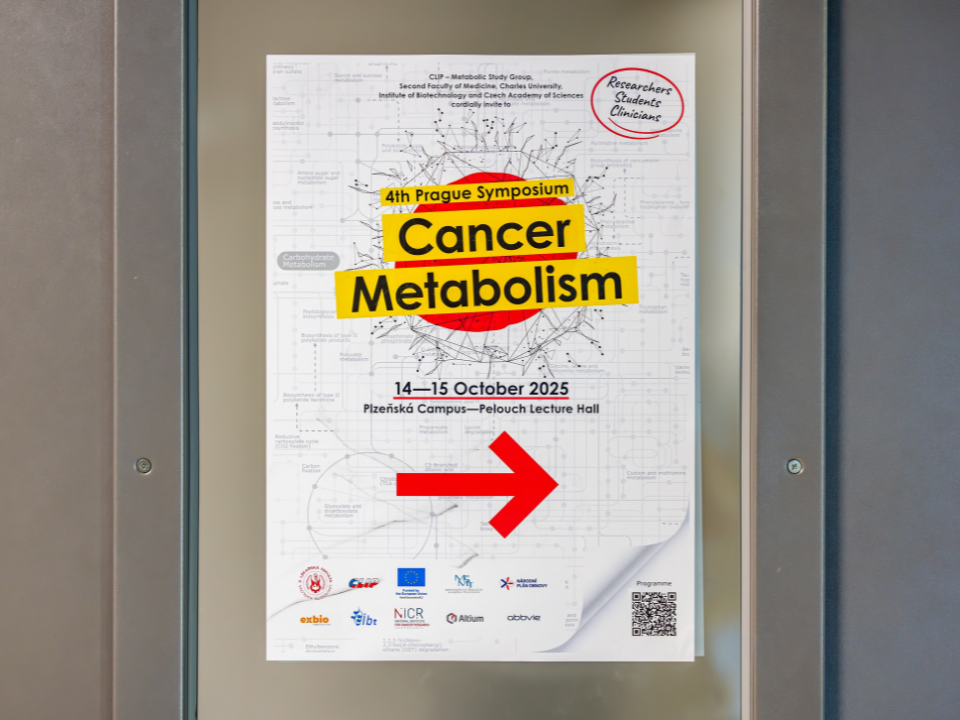The annual meeting of the American Association for Cancer Research (AACR) took place in Chicago on April 25–30. The programme included several studies by research groups from the National Institute for Cancer Research (NICR), from which we have selected the following information.
Scientists from Olomouc node of NICR presented at the AACR Congress study on circulating tumour cells migration beyond the central nervous system in glioblastoma multiforme (GBM). CTCs, which originate from primary tumours and migrate via peripheral blood to distant sites, are closely linked to tumour spread and recurrence. In GBM, systemic dissemination is rare. Despite this, study confirms the presence of CTCs in the peripheral blood of 35% of GBM patients, although currently without prognostic significance. (Abstract Nr 1991 /26)
Zuzana Kečkéšová, honoured by AACR as a NextGen Star 2025, research group leader at IOCB Prague and NICR looked for novel tumour suppressor proteins in cancer-resistant tissues, which resulted in a list of 87 candidate genes. In a proof-of-concept study, they found that one of them, LACTB (Lactamase B-like) acts through the reprogramming of metabolism and cell differentiation in numerous types of cancer, e.g. breast and ovarian cancer, colorectal cancer, hepatocellular carcinoma, glioma, gastric cancer, melanoma, and lung cancer. (Abstract Nr SY26-01)
Bortezomib (BTZ) resistant multiple myeloma shows a specific dependency on Ecm29, presented in Chicago scientists from Masaryk University, Brno, and NICR. Using genome-wide CRISPR/Cas9-based functional screening in BTZ-adapted cell lines in vitro was identified the proteasome adaptor and scaffold protein Ecm29 as an essential survival factor for BTZ-adapted cells under treatment. Ecm29 may therefore represent a novel therapeutic target to specifically re-sensitize MM cells resistant to proteasome inhition. (Abstract Nr 2974 / 4)
Inhibition of Casein kinase 1 alpha (CK1α) is a new therapy of acute myeloid leukaemia (AML). Currently available CK1α inhibitors lack sufficient activity and selectivity. Scientists from Masaryk University, Brno, and NICR presented newly developed potent and highly selective first-in-class CK1 kinase inhibitors. High efficacy and safety were observed in AML models and additionally in Gemcitabine-resistant pancreatic cancer model. Proof-of-concept studies are also underway for melanoma and prostate cancer. (Abstract Nr 5598 / 8)
Circulating and salivary DNA-based biomarkers show potential for early diagnosis and monitoring of HPV-related oropharyngeal cancer. Scientists from Olomouc node of NICR present at the AACR Congress study aimed to validate the combined use of liquid biopsy collection, oral HPV DNA detection, and circulating tumour HPV DNA detection for early diagnosis and recurrence monitoring in HPV-related oropharyngeal squamous cell carcinoma. Preliminary findings demonstrate the potential for early detection and screening. (Abstract Nr 7069 / 10)





